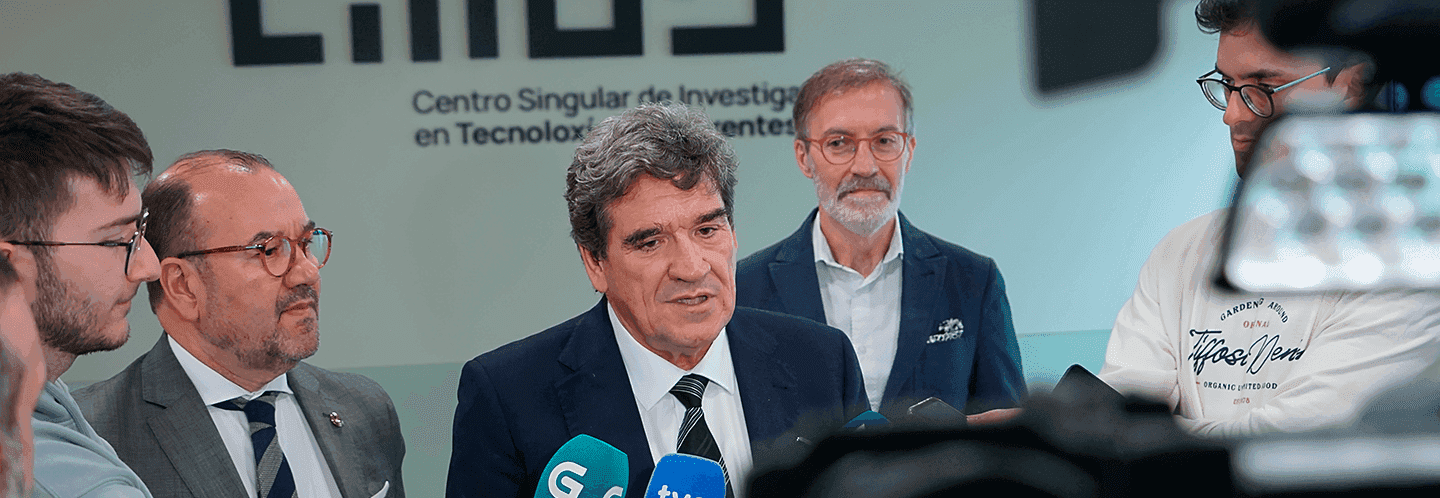
The Minister for Digital Transformation and the Civil Service visits CiTIUS
José Luis Escrivá got to know in detail the facilities and the latest projects achieved by the centre, including two new university-industry chairs led by CiTIUS and financed by the ministry itself.
The Minister for Digital Transformation and Public Administration, José Luis Escrivá, visited the Singular Centre for Research in Intelligent Technologies (CiTIUS) of the USC this Wednesday, accompanied by the rector Antonio López and the centre’s scientific director, Senén Barro.
In a meeting with the media, Escrivá highlighted «the entire powerful ecosystem around Artificial Intelligence in Galicia», and specifically regarding the work of CiTIUS, he emphasised the «highly significant effort» in the field of AI model development, something on which the Ministry he heads is working, both in the search for «more transparent, more ethical» models and in projects related to language, with a special reference to the work of CiTIUS and the ILG in the «successful Project Nós».
The minister had the opportunity to see the CiTIUS (co-funded by the European Union through the Galicia FEDER 2021-2027 program) facilities first-hand, where the principal research staff explained their potential and the projects being developed there. Specifically, he toured several laboratories at the centre, including the Intangible Realities Laboratory, directed by David Glowacki; the Microelectronics Laboratory, supervised by Diego Cabello and Paula López Martínez; and the Robotics Laboratory, led by Roberto Iglesias, Juan Antonio Corrales, Alejandro Catalá, and Nelly Condori.
Next, the minister attended a presentation session on the centre’s activities, the latest developments, and new high-impact research projects. Professor Senén Barro explained the details of the two new research chairs funded by the Ministry of Digital Transformation: the USC-Plexus Tech Chair in Artificial Intelligence Applied to Precision Personalised Medicine, which he directs, and the USC-Televés Chair in Microelectronic Design, directed by Paula López Martínez.
Precisely, the minister highlighted these chairs as «very innovative» in his speech. «For them to be sustainable over time, it is very important to work, as is done in this case, and what makes them unique, on the transfer of knowledge and the application of useful scientific developments working directly with companies». According to Escrivá, the CiTIUS chairs at USC «are the best example of how the University can work in a transformative way so that all research results in a direct benefit to society».
The round of presentations continued with the HYBRIDS project, led by its principal investigator, Pablo Gamallo; the innovative use of virtual reality in palliative treatments, led by David Glowacki; and the RePowerSiC project by Natalia Seoane Iglesias, focused on energy transfer technologies for space exploration.